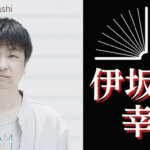Reiwa Shinsengumi, an anti-establishment party organized only three months before the July 21 election by Yamamoto Taro, is making a big splash in Japan.
On Thursday, Yasuhiko Funago and Eiko Kimura who both ran for a new anti-establishment group, took their seats in Japan’s parliament as the first lawmakers with severe disabilities. Funago, 61, who has amyotrophic lateral sclerosis (ALS), also known as Lou Gehrig’s disease, and Eiko Kimura, 54, who has cerebral palsy, won Upper House seats for the first time in the proportional representation constituency in the election. They are both wheelchair-bound and require support from several caregivers. They ran for a brand-new left group lead by the charismatic actor-turned-politician, Yamamoto Taro.
Japan’s upper house steering committee agreed, on Thursday, to start renovation work in parliament to provide barrier-free accessibility after Funago and Kimura were elected as lawmakers. They have been tasked with looking for ways to ensure that the two can participate fully in lawmaking sessions, including by making modifications inside the Diet building and introducing new procedural rules. The founder of the party, Yamamoto has said, “The political process in the Diet will not be determined only by healthy people anymore,” according to The Mainichi Shimbun.
Challenging stigma towards disabled people
There are 9.63 million disabled people in the country according to Japan’s cabinet office, and they have long been encouraged to stay in the shadow. Funago and Kimura’s election is a visible sign of changing attitudes toward disabled people in Japan. In 2016, Japan’s worst mass killing in decades took place. 19 mentally and physically disabled people were killed by a knife-wielding man at the Tsukui Yamayuri-En facility—an atrocity that clearly indicates the stigma and the shame towards disabled people in this country. The candidacies have been seen as major step for representation of disabled people in Japan, and with the upcoming Tokyo Paralympic in 2020, they are taking vital step towards more an inclusive society.
What is Reiwa Shinsengumi?
Reiwa Shinsengumi, a brand-new leftist opposition party founded by Taro Yamamoto, advocates a society that focuses on people it says are overlooked in Japan’s traditional society. The charismatic founder, Taro Yamamoto served as a co-leader of the Liberal Party, but after the party merged with the Democratic Party for the People, Yamamoto parted ways and established Reiwa Shinsengumi in April.
Although the Liberal Democratic Party (LDP) and its coalition partners won a supermajority in the Upper House and Yamamoto did not win a seat. Yamamoto gained nearly 1 million votes; the largest number of votes for an unsuccessful candidate under the current electoral rules. The party mobilized 3,500 volunteers, raised $4 million in donations, and won 4.6 percent of the total votes and two seats in the upper house.
The Reiwa Shinsengumi phenomenon reflects a widening socioeconomic disparity in Japan. The poverty rate in Japan is nearly 16 percent, which is the second-worst among the G7 countries. 57.7 percent of the Japanese population say they face economic hardships. The leftist party’s populist agenda appeal to many ordinary Japanese who are completely ignored by the mainstream media. In his speech, Yamamoto describes a Japan made up of numerous ordinary citizens, young workers, single mothers, the disabled, and the elderly, all subject to the increasing pressures of a rapacious economic system.
What is notable about the brand-new group is not just its electoral success without a traditional party organization, but its embrace of left-wing populism. Yamamoto, who demands an immediate end to the regressive consumption tax, has openly opposed the construction of the Henoko Base in Okinawa, demanded an immediate and unconditional end to nuclear power in Japan, and proposed a 1500-yen-an-hour minimum wage, and is given the name of “Japan’s Bernie Sanders”. He criticizes the existing system for ignoring the poor and the vulnerable, and aims to create a “society that does not judge people by their ‘productivity’.”













































